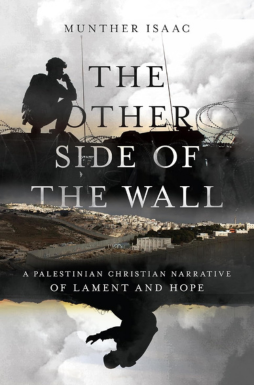By Isaac Munther
256 pages, IVP
ISBN 978-0830831999
Goodreads rating: 4.62 out of 5
Perhaps no other hot button issue divides evangelical Christians today than the Palestinian Conflict. The current Gaza–Israel conflict which started in October 2023, is only the most recent war in a long line of aggressions over the decades stretching back to the 1948 Palestinian Plan by the British Mandate. Along the way, we have had the first Israeli-Arab war in 1948, the Suez Crisis in 1956, the Six-Day War in 1967, the Yom Kippur War in 1973, not one, but two intifadas (“uprising”), resulting in thousands upon thousands of deaths on both sides of the divide.
Many will also be quick to point out that the origins of the conflict go back long beyond 1948. One may argue that events like the Hitler’s anti-Semitic persecution during World War II and even the Balfour Declaration are just milestones in history that started with the promise God gave Abraham regarding the land in Genesis 12:1. By that reasoning, the destruction of the temple by Antiochus Epiphanes would hasten the Jewish Diaspora that would ultimately sow the seeds of the conflict today.
But let’s not even begin to consider the political side of the discussion today (“military presence”, “oil”, “apartheid”, etc.). Our concern today boils that to the question – What is the Christian response? Or to be more specific, disregarding the endless (and often misguided) rhetoric from the American evangelical leaders, the question should be “What is the response of the Malaysian evangelical Christian?” Even this simple question is more polarizing than you would think, given the small demography that would care to answer this question. The Zionist Christians (for a lack of a better collective term) who believe that the Jews and Israelis are still the chosen people of God today and can do no wrong. The younger generation, on the other hand, tends to view it from the social justice viewpoint, with little regard for entitlement. And there is finally the majority that lives in between. Perhaps, then, for most Christians, this isn’t a question of geopolitical history, but rather a question of biblical interpretation. What did Yahweh really mean when He made that covenant to Abraham? How much of the covenant did Jesus renew in the New Testament? When we have a better understanding of genetics and DNA, how important is race and lineage anymore after a few millennia of questionable intermarrying? Or should the question really be “In the context of this conflict, what does Jesus REALLY mean by ‘love your neighbour as yourself’?” Or, really, ‘who is my neighbour’?
In his book ‘The Other Side of the Wall’, Isaac Munther presents a view that is often forgotten or silenced – that of the Palestinian Arab Christian. They are neither Jews nor Muslims, hence they are considered third class with even fewer rights and freedom than their Muslim brothers. But they have been natives of the land for centuries, long before Herzl even had the idea of a Jewish homeland. Munther is a pastor and theologian, and takes great pains to describe the daily humiliation and struggles he and his family has to endure to even survive in his own homeland. The Palestinian church predates Islam, yet Palestinian Christians find themselves marginalized and ostracized and some Western countries even refuse to acknowledge their existence.
Despite the overpowering narrative of the Western world on the Jewish homeland, Munther argues his case based on the fundamental word of God and how it should apply to all people, regardless of the geopolitical situation. He offers a theology of the land and a vision for a shared land that belongs to God, where there are no second-class citizens of any kind. You may think that in any other situation, this is an unequivocal truth, yet when it comes to Palestine, we can make exceptions. Munther also shares his deep struggle in reading the word of God where it talks about the Jews and Israelites and their special relationship with God, yet the same people (Israelis) are oppressing him, taking away his land, and killing his neighbours.
Whatever your views are on the Palestinian Conflict, Isaac Munther’s book “The Other Side of the Wall” offers a challenging yet different view of the issue, one which all Christians owe it to themselves to consider. Perhaps it will help us better answer the question of “who is my neighbour”?
📖 This book is available to be borrowed from the PJEFC Library.

